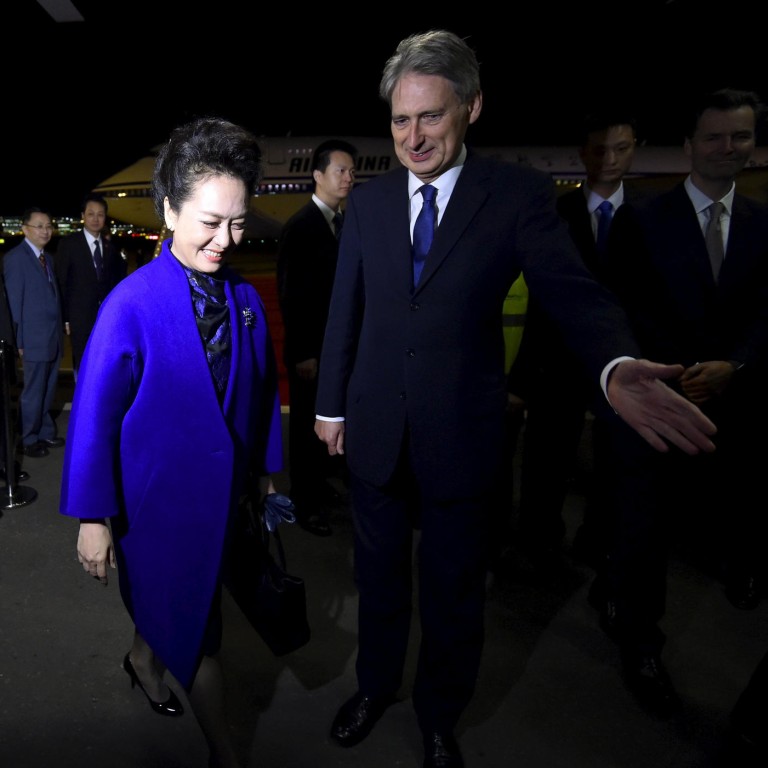
No permanent friends for Britain in newly pragmatic foreign policy
Emanuele Scimia says Britain's charm offensive to China shows that it may be focusing more on a rising multipolar world order and less on its special relationship with the US
A multi-vector diplomacy entails that a country has no strategic ally, but only strategic interests
Britain is probably attempting to reshape its foreign policy, and it looks like Washington's possible decline as a superpower frightens the British cabinet much more than the current slowdown in China's economy. This does not mean that London will quietly fall into line with Beijing's policies, as some observers contend, alluding in particular to the UK government's apparent reluctance to engage Chinese leaders over human rights and the future status of the former British colony of Hong Kong.
The reality is more complex and mirrors the blossoming of a multi-vector diplomacy in London, much less focused on the traditional special relationship with the US and more concentrated on diversifying trade and political partners. In this prospect, the model to refer to is Germany, which is both a strong ally of Washington and a key economic partner for China (and Russia).
READ MORE: Dealing with the rise of China: the US should learn from the British the art of the deal

A multi-vector diplomacy entails that a country has no strategic ally, but only strategic interests. There is evidence that London is indeed taking this path, and in some cases at odds with China. Immediately after its approval, on September 18, Britain's Foreign Secretary Philip Hammond hailed a reform to Japan's self-defence laws that incensed Beijing and delighted Washington.
This constitutional change reinterprets Tokyo's pacifist constitution and lifts some constraints on the use of the Japanese armed forces abroad that have been imposed on Tokyo since the end of the second world war. When someone advocates Japan's enhanced participation in security affairs, not least in regional security in East Asia, leaders in China start to raise their eyebrows, given maritime border disputes that currently pit Beijing against Tokyo in the East China Sea.

It is worth remembering that Beijing unilaterally declared an air defence identification zone over the East China Sea in November 2013, challenging Japan's claims over the Diaoyu/Senkaku Islands. Furthermore, China has thus far rejected the legal case against its South China Sea claims initiated by the Philippines at the United Nations Permanent Court of Arbitration in The Hague.
With its charm offensive to China, London is probably betting on a new world order in which power is increasingly parcelled out among a number of great regional forces with global projection capacity. Against this background, the special relationship with Washington remains in place, but it will likely be tempered by pragmatic partnership with a still-rising Beijing. And the ability to balance relations between the US and China will ultimately define the true nature of Britain's foreign policy down the line.

